Introduction to Harm Reduction
Core Training Sections
Building on the importance of a strengths-based approach, consistency and cultural humility for relationship-based advocacy, volunteer advocates are introduced to the theory and practice of harm reduction. Harm reduction is a set of practical strategies and ideas aimed at reducing negative consequences associated with drug use, but is also applicable for reducing harm related to other risky behaviors. Through the lens of harm reduction and the tool of motivational interviewing, volunteer advocates will be better equipped to manage their expectations of youth, families and other child welfare team members through a posture of curiosity and non-judgment.
Goals for this class include:
Understand how Harm Reduction relates to the CASA role.
Become familiar with Motivational Interviewing principles and techniques.
Identify the strengths and resources of individuals and families.
Identify risk factors associated with child abuse and neglect.
Understand how times of stress and crisis affect families and children.
Recognize how mental illness affects families and children.
Recognize how substance misuse affects families and children
Training Handouts:
Language of Harm Reduction
Motivational Interviewing Overview
Decisional Balance
Eight Stages of Learning Motivational Interviewing
Interacting Layers of Trauma and Healing
Stages of Change
Vulnerability
Harm Reduction Definition and Principles
Harm Reduction: SFCASA Examples
